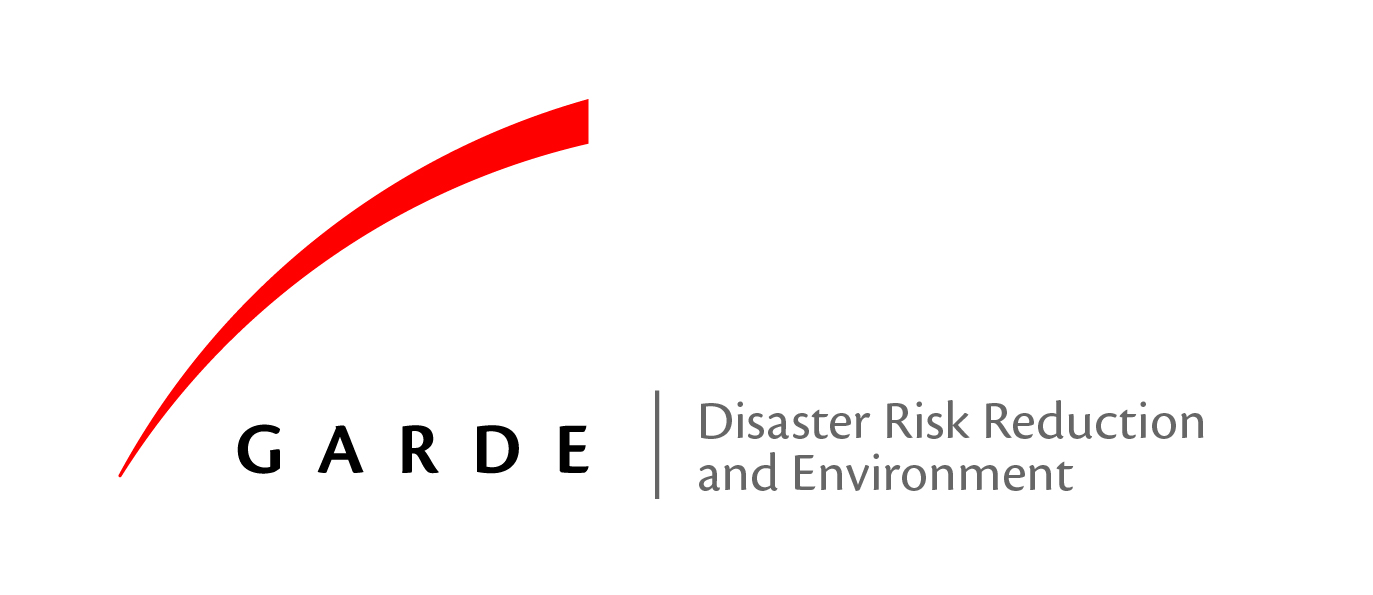Initiatives
GARDE activities are directed towards projects that prevent natural disasters or aim at the recovery of the environment. We believe that resilience and the ability of a community to reestablish in a sustainable manner are vital to achieving an egalitarian social development. To meet our goals, we operate in five areas aligned to the Sustainable Development Goals.
Reducing the risk of natural disasters and enhancing local resilience
GARDE's main goals include reducing the risk of natural disasters and enhancing the resilience of impacted communities and localized in areas sensitive to these extreme events, acting in accordance with UN directives through its Office for Risk Reduction Natural disasters (UNISDR) and the resolutions adopted at the World Conference on Natural Disaster Reduction in Sendai, Japan in 2015 (Sendai Framework for Disaster Risk Reduction: 2015-2030)
At GARDE, we aim to achieve these goals by planning, implementing and supporting projects that promote the best practices in disaster risk reduction (DRR) and developing communities' capacity to adapt through awareness of climate change, environmental disasters and their socio-economic impacts, with a special focus on women's inclusion and participation in the adaptation plan
Environmental preservation and monitoring of potentially threatening anthropogenic activities
Since ancient times, humankind has encountered environmental and social tragedies generated by natural and man-made factors. In the last decades, human interference with the environment has grown exponentially, as well as population growth. Due to the speed of the expansion of activities and the operational absence of monitoring and forecasting mechanisms, several initiatives operate without due care with the risks and impacts they can cause. Those responsible for granting operating licenses and monitoring processes (usually government entities) do not act effectively, either for lack of knowledge, funds, projects, interest or other reasons. Risks can be mapped, processes that potentially can lead to disasters can be monitored, and possible impacts can be mitigated efficiently provided if there is prior knowledge of the socio-environmental conditions of vulnerable regions.
Studies on climate change
In the recent years, we have witnessed a significant increase in the occurrence of extreme weather events, whether tornadoes and hurricanes, heavy rainfall that causes floods and landslides or hot flashes and long periods of drought. Invariably, these events generate fatal victims and high economic and material losses and impose innumerable sacrifices on the population.
Climate change is the main cause of these extreme events. Part of these changes is of natural origin, inherent in terrestrial dynamics and their orbital variations. However, in recent years global warming, generated mainly by the use of fossil fuels and deforestation, has a large share of contribution to climate change and, consequently, is directly related to the increase of occurrences of intense rainfalls and long periods of drought.
At GARDE, we understand that the scientific knowledge is the best way to achieve the goals and reduce the risks of natural disasters and adaptation to climate change.
Strategies for adapting to climate change and interacting with the environment
Environmental impacts and climate disasters compromise the development and aggravate the poverty. Constantly affected communities are hardly able to overcome the consequences of extreme events and are generally unable to promote actions aimed at the development and well-being of the population. However, in many scenarios, environmental disasters are inevitable and, therefore, we need to find ways to deal with impacts. Through a multisectoral participation, our objective is to alleviate the environmental impacts through the adoption of adaptation strategies appropriate to the reality of each region.
Socioeconomic and socio-environmental projects with emphasis on the participation of ethnic and gender minorities
Populations are unequally affected by environmental disasters. Its consequences are more intense for economically and culturally vulnerable populations. Due to inequality in the social, economic and political spheres, women and ethnic minorities are often deprived of participation in community policy-making as well as access to technology and information. In line with the objectives of sustainable development, we seek together with the communities, solutions to improve coexistence with regions of risk based on the resumption of traditional knowledge, awareness of environmental risks and their socioeconomic impacts, adaptability and broad collective participation.


Projects
GARDE is based on interaction with the community and transparency in communication between the institutions involved and local actors. The development of our projects is focused on technology for disaster risk reduction, opening spaces for dialogue with academia, government representatives, private companies and communities.
CONTACT INFO
Incubadora de Empresas Laboratório Nacional de Computação Científica (LNCC)
Av. Getúlio Vargas, 333, Quitandinha, Petrópolis - RJ Brazil
| Thank you for Signing Up |


